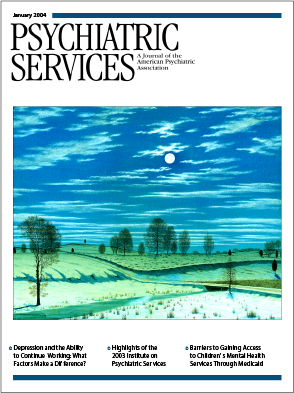Use of Mental Health Services in Chile
Abstract
OBJECTIVES: To address the growing burden of mental illness in Latin America, a better understanding of mental health service use and barriers to care is needed. Although many Latin American countries have nationalized health care systems that could potentially improve access to care, significant barriers to care remain. The authors report the results of a study examining mental health service utilization in the general population of Chile. METHODS: The data were drawn from the Chile Psychiatric Prevalence Study, a national household survey of 2,987 persons aged 15 years and older conducted in 1992-1999. As part of the survey, psychiatric diagnoses were obtained by using the Composite International Diagnostic Interview, and respondents were asked about their use of general and mental health care services in the past six months and about their experience of barriers to treatment. RESULTS: More than 44 percent of respondents reported use of any health care services in the past six months, and 20 percent reported use of mental health services. Of the respondents who met criteria for a psychiatric disorder, a large proportion (62 percent) did not receive mental health care. Increasing severity of the psychiatric disorder correlated with increasing frequency of overall help seeking, but only a small proportion of the respondents with a psychiatric disorder sought specialized mental health services. Regional disparities and inequities in access to care were found. In addition, indirect barriers to mental health care, such as stigma and misconceptions about the course of psychiatric disorders, were important deterrents to service utilization, particularly among persons with lower socioeconomic status. CONCLUSIONS: To reduce the burden of mental illness in Chile, additional efforts are needed to address both the direct and the indirect barriers to mental health care, including regional inequities in access to care.



